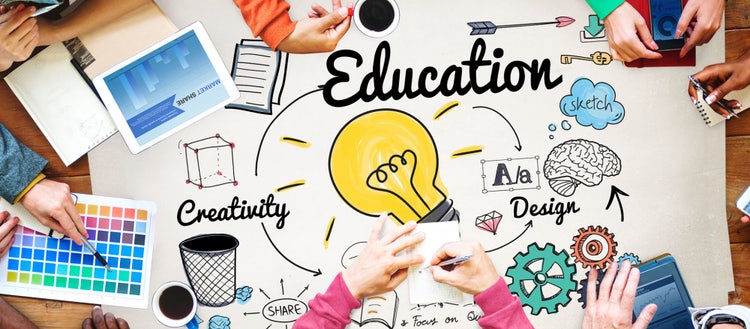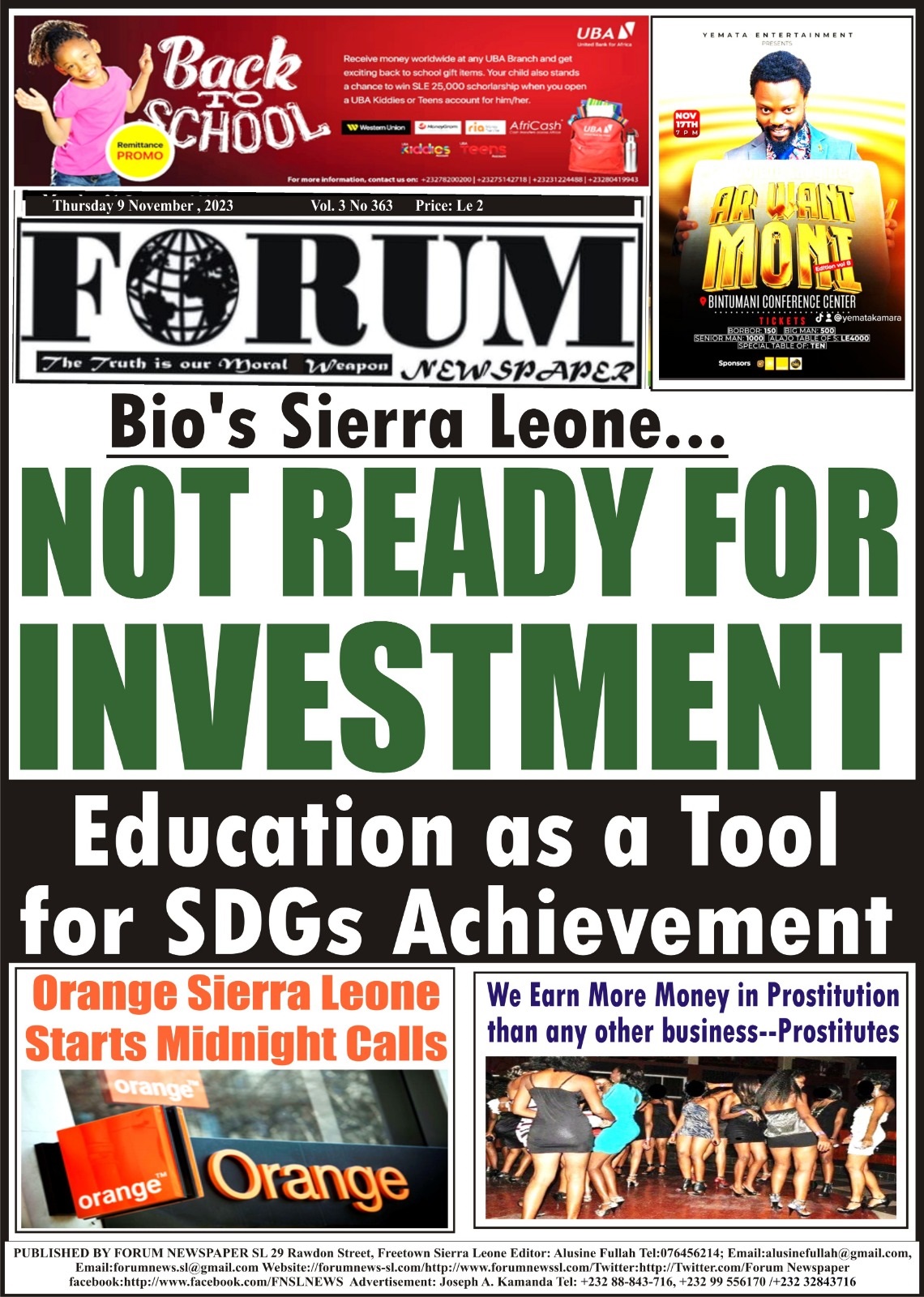I BLOW MY CONCH ON ISSUES
The 2030 Agenda for Sustainable Development, adopted by all United Nations Member States in 2015, provides a shared blueprint for peace and prosperity for people and the planet, now and into the future. At its heart are the 17 Sustainable Development Goals (SDGs), which are an urgent call for action by all countries – developed and developing – in a global partnership. They recognize that ending poverty and other deprivations must go hand-in-hand with strategies that improve health and education, reduce inequality, and spur economic growth – all while tackling climate change and working to preserve our oceans and forests.
In nexus with the foregoing assertion, the writer is in the view that, education can serve as a perfect tool to greater extent a panacea in the achievement of SDGs across the globe. So this means that, countries that are under the pledge, should invest in education. Making sure that education be a priority for all and sundry. For instance, in Sierra Leone there have been huge strides to prioritise education for all. In line with that, H.E Bio in his inception for his first term in office launched the Free Quality Education. For the writer, education is center stage in making sure that goals like poverty, gender equality, clean water and sanitation, decent work and economic growth, peace and justice, strong institutions, climate action, sustainable cities and economic. So how can countries achieve those goals, when illiteracy in on the brink around the globe? People need have to be fully informed/ education about the risk of poverty, climate change, gender inequality, good sanitation, etc. So education can serve as a driving force in making sure that countries members achieve those goals.
Yes, for the past decades, Education in Sierra Leone remains a challenging topic, deeply connected to the country’s history. While its educational system is characterised as ‘recovering from the debilitating destruction of war’ due to the aftermath of the civil war that deeply affected the country between 1991 and 2002 – many issues that afflict education are linked to poverty and its post-colonial reality. Recent improvements to education policies are built on the 2004 Education Act, a crucial milestone that made basic education – primary and lower secondary – free to every child.
While school enrolment underwent a massive surge after the conflict, especially in primary education – from 659,503 reported primary students in 2001/02 to 1,280,853 in 2004/05 (World Bank, 2007, p. 176) – many issues still characterise this system as precarious. Lack of learning material, proper infrastructure and qualified teachers are common issues that deeply impact the quality of education. Despite these challenges, other crucial issues act as barriers that prevent education participation: above all of them is poverty, with many families struggling to afford the hidden costs of education or being unable to spare children from domestic work or labour.
The role that education plays in our lives is undeniable – and it often remains unseen. In the modern world, education is often synonymous with schooling, standardised tests and academic achievements. While academic achievements remain an important goal of education, it is also beneficial to reflect on education as a force for social change. As M McCulloch (2011) argues, education ‘has been a rallying call for social progress, change and equality, and has been fundamental to social class struggles, struggles for democracy, and the fight for social justice’ (p. 1). In this perspective, education allows people not only to be valuable and productive members of society but also provides the tools to change said society.
The importance of education has been acknowledged over time, to the point where it has been listed as a basic human right. The Universal Declaration of Human Rights advocates for accessible education aimed at the ‘full development of the human personality’, also stressing the promotion of ‘understanding, tolerance and friendship among all nations, racial or religious groups’ (UN General Assembly, 1948, art. 16). According to the Declaration, elementary education of young children is also envisioned as both free and compulsory (art. 16). The Declaration’s focus is undoubtedly on education as a means to form an individual, providing equal opportunities to learning and intrinsically benefitting intercultural understanding among social groups.
For these reasons, education is a core goal of the Sustainable Development Goals (SDGs), drafted by the United Nations in 2015. The fourth point, solely dedicated to learning, stresses the need for ‘inclusive and equitable’ primary and secondary education for both boys and girls (United Nations, 2015, sec. 17), addressing the disparity often present across genders. Moreover, this goal focuses on access to vocational, technical and higher education as well as education that can provide adequate employment skills. Given the aims of the SDGs, it is evident that education is conceptualised in relation to social, economic and environmental development: compared to the advocacy of the Declaration, the SDGs see education as a central force for human development.
Education follows a similar discussion. Even if we consider education as a panacea applicable to diverse aspects of economic, social and environmental development – similar to the SDGs discourse – the ambivalence of such links must be taken into consideration. Studies show that education can lead to better chances of employment, poverty alleviation and economic growth, but the chances of receiving formal education are also severely hindered by poverty, leading to what Tilak (2010) calls ‘education poverty’ (p. 199). Even in countries where free basic education is available, case studies have shown that families might not be able to afford the hidden costs of education – textbooks, school supplies, uniforms, transportation fees, etc.










